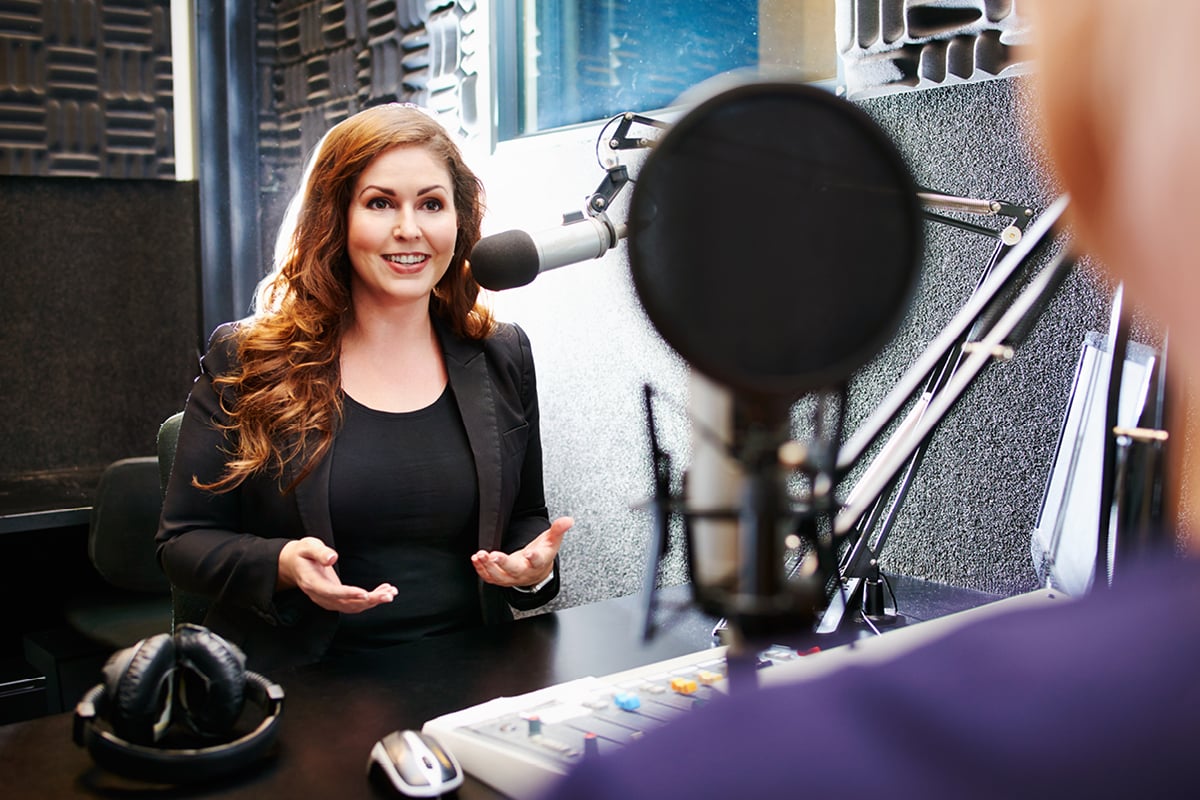From Serial to 2 Guys 1 Cup AFL to TOFOP, podcasts are to audio what Netflix is to TV – people can’t wait to tell you what amazing program they’ve discovered and recommend what you should get into next.
Podcasting is one of the fastest-growing content mediums and smart marketers are using this easy, cheap platform to personalise their brands, reach their audience in a new way, and grow their business.
Here’s why you need to start a podcast too:
That personal touch
Every attempt you make to connect with your customers – through social media, blogs, emails and even direct mail if you’re going old school – lack one crucial thing. A voice.
I’m not talking about your style or, to quote the kids, putting some stank on a topic. I mean an actual voice, a human voice. Text lacks emotion and we’ve all suffered the difficulty of conveying tone in text form when a co-worker has responded to a well-meaning email as though they’ve spent a week drowning in a vat of snark.
The human brain is programmed to be receptive to the sound of a human voice and the tone in which words are expressed more so than the actual words themselves. It’s this that makes podcasting such a powerful communication tool – and as an added bonus it feels more natural and authentic than a video. The personal touch of a podcast really does make a difference.
It’s really popular
According to research from Reuters, Nielsen and Edison Research, an average of 33% of Australians, and in fact the population of most developed nations, listen to podcasts. What’s more, podcast listeners tend to be more engaged on social media platforms too.
Most podcast fans aren’t casual listeners either – almost 80% tune in religiously to their favourite podcasts and considering that podcasts can last as long as 60 minutes, and usually at least 15 minutes, your podcast audience will be engaged with you for longer than they would spend on a week’s worth of blogs – and that’s if they didn’t lose interest halfway through.
In fact, by this point we’ve probably lost about 40% of our initial readers and that’s normal because people are busy and our brains can’t multitask if we’re reading.
Reach busy people
Reading a blog takes almost all of our powers of concentration because reading is a memory exercise and our brains have to recall the letters on the screen and process them into something comprehendible.
Audio is different though. Our brains process audio differently which is why we can multitask while listening to music or watching a show.
Busy people tend to attempt to maximise their day by doing things during their commute, and listening to podcasts is one of those things. And as more than half of all internet usage flows through mobile devices these days, podcasts are the perfect way to consume content on-the-move.
You’re more likely to engage those hard to reach, busy customers with a podcast than with a blog, no matter how well it is written.
Grow your audience
Podcasts are great for connecting with your existing audience in a new way, and as they’re also likely avid fans of social media, you’re sure to develop a few hardcore followers who will advocate for your brand. As though that wasn’t enough of a reason to start a podcast, it’s also an opportunity to reach new people.
When you record a new episode, it will boost traffic to your site, generate backlinks and improve your Google rankings. If you have the time you can publish transcripts which will get indexed. You can also promote your blog by creating exclusive follow-up content that can only be read on your website which will increase the time your audience spends on your site.
Podcast host platforms that link into iTunes will also act as a search engine to help direct people to your brand based on their topic interests even if they haven’t heard of you before.
Podcasts are so easy and inexpensive to set up, you could have started your own before you’d finished forwarding this article to your colleagues.







